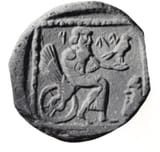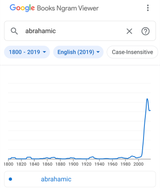Anonymous
7/6/2025, 9:05:39 AM
No.17818477
[Report]
>>17818753
>>17818762
>>17819386
>>17819819
>>17819837
>>17819939
>>17819953
The Abrahamic Question
How do the other Abrahamic religions reconcile the fact that Judaism is their progenitor?
I'm asking this as someone from a Muslim background who had a near-death experience that’s left me questioning my beliefs and struggling to make sense of where I stand. What troubles me is that both Christianity and Islam, despite claiming to correct or transcend earlier teachings, are ultimately rooted in Judaism. No matter how much they seek to reinterpret or refine it, they share the same foundational source, and that source, to me, feels deeply problematic.
Judaism, at its core, appears to be a tribal, ethnocentric religion. Its conception of God seems more like a national deity concerned with a specific people than a truly universal being. Historically, it evolved from Israelite paganism, which itself was drawn from the older Canaanite pantheon. Yahweh was originally a tribal weather and war god, later conflated with the Canaanite chief god El and gradually elevated above the other deities in a process that moved from polytheism, to henotheism, and eventually to monotheism. That evolution, from worshipping one god among many to claiming the existence of only one God, may explain the current monotheistic framework but it doesn’t change the origins. If the origins of the Abrahamic faiths lie in a flawed, tribal, and seemingly man-made tradition, how can the resulting religions that branch from it be trusted as truly divine? I find myself unable to renounce the belief in God altogether, but I can’t help but feel that the historical underpinnings of Judaism undermine the credibility of the entire Abrahamic tradition.
I'm asking this as someone from a Muslim background who had a near-death experience that’s left me questioning my beliefs and struggling to make sense of where I stand. What troubles me is that both Christianity and Islam, despite claiming to correct or transcend earlier teachings, are ultimately rooted in Judaism. No matter how much they seek to reinterpret or refine it, they share the same foundational source, and that source, to me, feels deeply problematic.
Judaism, at its core, appears to be a tribal, ethnocentric religion. Its conception of God seems more like a national deity concerned with a specific people than a truly universal being. Historically, it evolved from Israelite paganism, which itself was drawn from the older Canaanite pantheon. Yahweh was originally a tribal weather and war god, later conflated with the Canaanite chief god El and gradually elevated above the other deities in a process that moved from polytheism, to henotheism, and eventually to monotheism. That evolution, from worshipping one god among many to claiming the existence of only one God, may explain the current monotheistic framework but it doesn’t change the origins. If the origins of the Abrahamic faiths lie in a flawed, tribal, and seemingly man-made tradition, how can the resulting religions that branch from it be trusted as truly divine? I find myself unable to renounce the belief in God altogether, but I can’t help but feel that the historical underpinnings of Judaism undermine the credibility of the entire Abrahamic tradition.

